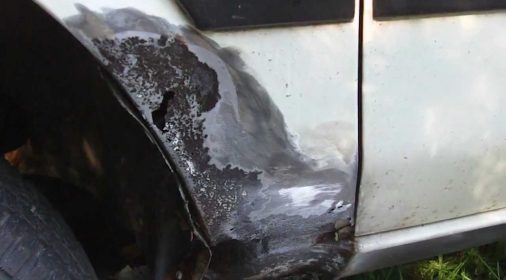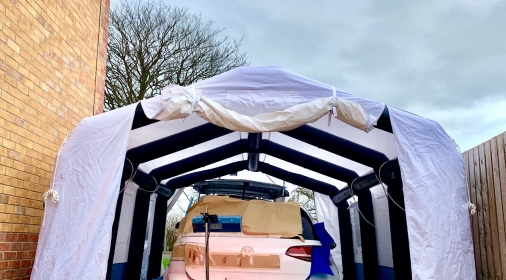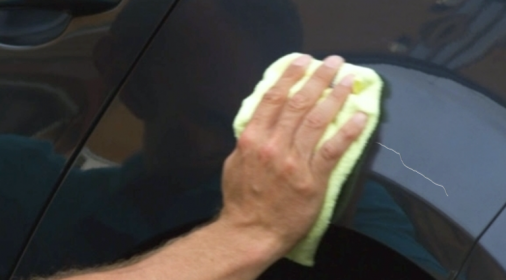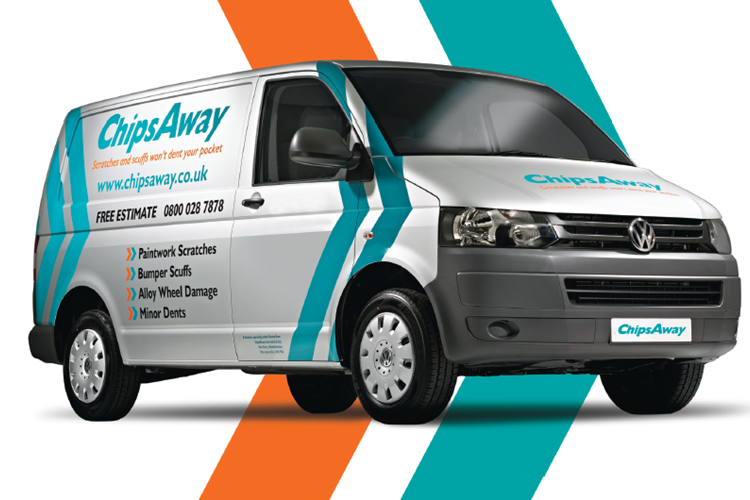How to Get Rid of Car Rust: Causes, Treatments & Prevention
Rust is one of the most common and frustrating problems faced by car owners. Whether it’s a small patch on the bodywork or corrosion underneath the chassis, a rusty car can quickly become a serious issue if left untreated.
This guide will walk you through everything you need to know about car rust repair, including the causes, different types of rust, common areas to watch for, and the best treatments to get rid of car rust and stop it from spreading.
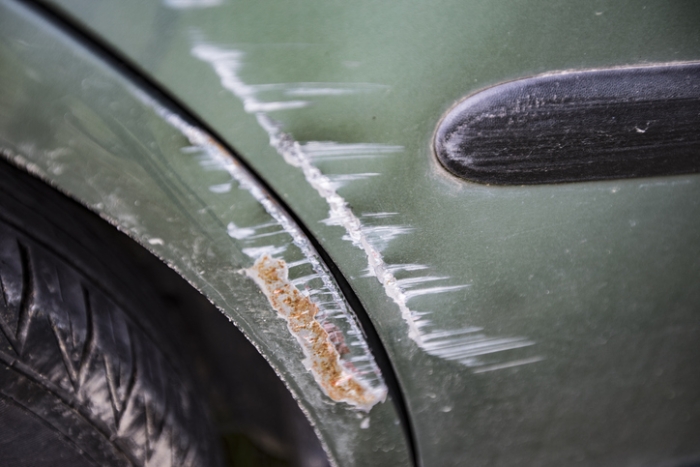
What Causes a Rusty Car?
Rust forms when iron in your car’s bodywork reacts with oxygen and moisture, creating iron oxide. This process, known as oxidation, accelerates in damp, salty or extreme weather conditions.
The most common causes of rust on cars include:
- Weather exposure – rain, snow, sun and road salt all increase the risk of rust.
- Stone chips, scratches and scuffs – exposed metal panels rust much faster.
- Lack of cleaning and protection – dirt, salt and moisture left on your car encourage corrosion.
What Are the Different Types of Car Rust?
There are three main types of rust you may encounter on your vehicle. Knowing how to identify them will help you decide the right rust remedy for cars.
-
Surface Rust
This is the earliest stage, usually appearing as small orange or red spots where paintwork has been scratched or chipped. Surface rust only affects the top layer of metal, and can often be repaired quickly with the right treatment.
-
Scale Rust
When surface rust is ignored, it develops into scale rust. At this stage, the corrosion starts to eat into the metal, causing bubbling, pitting and flaking paint. Treating rust on a car at this stage is essential before it penetrates deeper.
-
Penetrating Rust
The most serious type, penetrating rust corrodes all the way through the metal, leaving holes. This often requires professional auto rust repair or full panel replacement.
Common Areas Prone to Rust on Cars
Some parts of your car are more vulnerable to rust than others:
- Wheel arches
- Door sills
- Undercarriage and exhaust system
- Around the windscreen and boot lid
- Suspension and chassis components
Regular inspections can help you spot problems early.
How to Identify Rust on Your Car
Look out for:
- Small orange/red patches on the bodywork
- Bubbling paint or rough texture
- Flaking or blistering paint
- Visible holes in extreme cases
Early detection is the best way to fix rust on a car before it spreads.
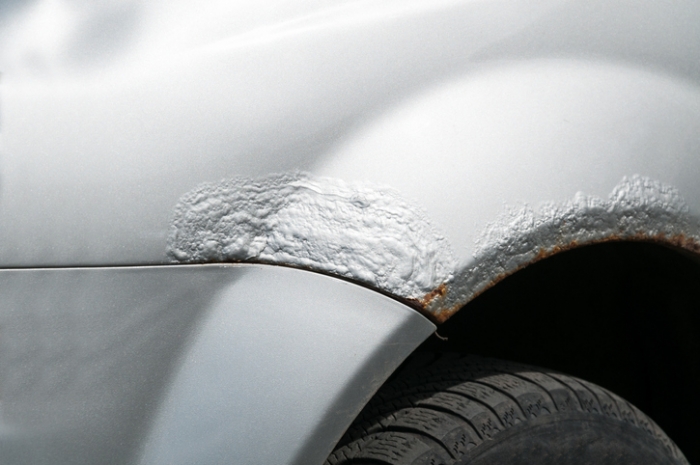
How to Get Rid of Car Rust: Treatments & Repair Options
When your car is rusting, you have several options depending on severity.
DIY Rust Repair
You can use DIY car rust remover kits (available from retailers like Halfords) to sand, prime and repaint affected areas. These work best for small surface spots. Always follow product instructions carefully and, ideally, carry out the repair in a dry indoor space.
Professional Vehicle Rust Repair
For scale or penetrating rust, it’s best to seek professional help. Bodyshops offer vehicle rust repair services, including welding, panel replacement, and repainting.
ChipsAway SMART Repairs
While ChipsAway do not carry out rust repairs (due to the risk of rust returning), they specialise in scratch, dent, scuff and alloy repairs. Tackling these early prevents rust from developing in the first place.
Should You Drive a Rusty Car?
Driving with small patches of surface rust is usually safe, but deeper rust can compromise your vehicle’s safety. Rust on the chassis, suspension or brake lines can weaken structural integrity and increase accident risk. If you notice significant corrosion, arrange an inspection as soon as possible.
How to Prevent Rust on Cars
Prevention is always cheaper than repair. Follow these steps to keep rust at bay:
- Wash your car regularly, especially in winter.
- Apply wax for extra protection.
- Repair chips and scratches promptly.
- Store your car in a garage or under a cover if possible.
- Use underbody rust protection treatments.
FAQs About Car Rust
Can you stop car rust once it starts?
Yes, if caught early, rust can be removed and repaired. Left untreated, it will spread.
Does WD-40 remove rust from a car?
WD-40 can help loosen rust and protect metal surfaces, but it won’t permanently repair rust damage.
Is it worth fixing rust on a car?
Yes – especially if it’s minor. Fixing rust early saves money and preserves resale value.
How expensive is it to fix rust on a car?
Costs vary depending on severity – from under £50 for DIY kits to hundreds (or more) for professional repairs.
Can I paint over small rust spots on my car?
No – painting over rust without removing it will only mask the problem temporarily.
Can car rust be repaired?
Yes. Professional auto rust repair can restore panels, but prevention is better than cure.
Is it bad to have rust under a car?
Yes. Rust on the undercarriage can weaken the frame, suspension and exhaust.
Can you remove rust from a car yourself?
Small patches, yes – but for larger repairs, professional help is recommended.
Do modern cars rust underneath?
Modern cars are better protected, but underbody rust still occurs, especially in regions where salt is used on roads.
Is it okay to buy a car with a bit of rust?
Minor rust may not be a dealbreaker, but always get the vehicle inspected to ensure there’s no structural damage.

